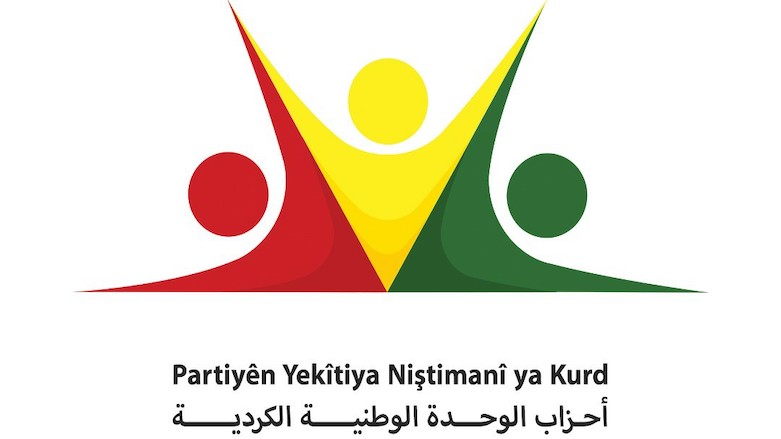ERBIL (Kurdistan 24) – Twenty-five Kurdish political parties and movements in northern Syria on Monday formed a political umbrella in Qamishlo intending to unite the Syrian Kurds under the name “Kurdish National Unity Parties.”
In a statement released on Tuesday, the 25 parties, which includes the Democratic Union Party (PYD), said the umbrella organization was formed to unite Kurdish ranks in Syria.
The parties include those who are a part of the Autonomous Administration of North and East Syria (AANES), and those outside of the administration, it added.
The umbrella organization plans to hold joint activities and meetings under the new party name to support the Kurdish unity initiative and to exchange views on the latest developments on the ground, the statement read.
The PYD and the Kurdish National Council (KNC), the two major factions among Syrian Kurdish parties, have continued negotiations that began in early November to discuss the need for unity after Turkey’s cross-border offensive in northern Syria in October.
Tensions between the KNC and PYD have increased since the outbreak of the Syrian civil war in 2011, with the latter playing a significant role in the establishment of the self-administration that has ruled northeastern Syria.
The dominant Syrian Kurdish factions – the PYD and Kurdistan Democratic Party (KDP)-backed KNC – have not successfully cooperated as had been hoped, in part because agreements they reached in Duhok and Erbil between 2012 and 2014 were never effectively implemented.
The United States has publically supported the SDF’s initiative to unite the Kurdish parties. Furthermore, the Kurdistan Region has also supported the efforts to bring the Syrian Kurds together.
In a meeting with Kurdistan Region President Nechirvan Barzani on May 13, US Consul General in Erbil, Steven Fagin, praised Barzani’s efforts to unify various Kurdish-led political factions in Syria.
In early May, William Roebuck, Deputy Special Envoy to the Global Coalition to Defeat the Islamic State, met with several Kurdish parties to discuss the unification initiative.
Guney Yildiz, a non-resident scholar at the Washington-based Middle East Institute, published a piece on May 4 where he said the initiative aims to “unify the Kurds to play a substantial role in political platforms that debate the future of Syria.”
Yildiz added that a second goal of the talks is “to alleviate Turkey’s hostility toward northeast Syria by including the KNC.”
So far, the PYD have been excluded from peace talks due to Turkish opposition, while the KNC joined the talks as a member of the Turkish-backed Syrian opposition.
On Tuesday, UN Syria Envoy Geir Pedersen said new constitutional talks might be held in Geneva again in the future.
Turkey has publically opposed the Kurdish unity talks.
Turkish Foreign Minister Mevlut Cavusoglu told A Haber on Friday that the KNC should not make deals with the People’s Protection Units (YPG), which Turkey alleges has close ties to the Kurdistan Workers’ Party (PKK), a claim the YPG denies.
The PKK is a Kurdish rebel force currently engaged in a decades-long war with Ankara for broader Kurdish rights in Turkey.
Salih Muslim, the co-spokesperson of the PYD, recently told Kurdistan 24 that no agreement has been reached between the two sides so far.
During an online meeting on May 12, the KNC leadership and the majority of its members discussed the initiative.
A day after the meeting, the KNC released a statement where it underlined the “necessity and importance of achieving [unity] in a way that serves the cause of the Kurdish people in Syria and the consolidation of their legitimate rights in the context of a federal, democratic, multi-national, and multi-religious Syria.”
The KNC also expressed support for the efforts of the US and the leadership of the Kurdistan Region “to achieve the unity of the Kurds within the framework of the national opposition.”

